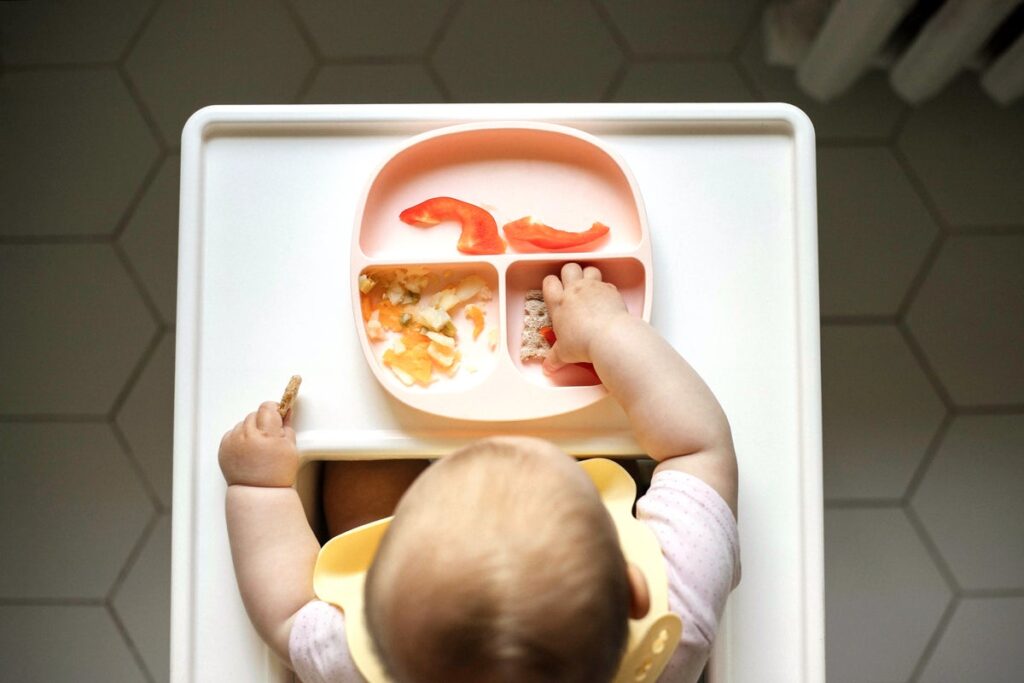Most U.S. Babies Are Deficient in Key Gut Microbes Essential for Their Health
Babies lacking in key gut bacteria are at greater risk of developing asthma, allergies or eczema
Evgeniia Siiankovskaia/Getty Images
Dirty diapers are more than a messy reality of infant care—baby poop can be an indicator of an infant’s gut microbiome and future health.
Scientists recently published the first two years of data from My Baby Biome, a seven-year research project that represents one of the largest and most geographically diverse U.S. infant microbiome studies to date. The findings, which came out in Communications Biology in June, are concerning: more than 75 percent of the babies in the study were deficient in key gut bacteria that are associated with a healthy microbiome. Nearly all the infants displayed deficiencies in gut microbes of some kind. These deficiencies led to a significantly increased risk of those children developing allergies, asthma or eczema, according to the study.
“Three-quarters of babies are at heightened risk of atopic conditions because of the composition of their microbiome,” says Stephanie Culler, senior author of the new study. “That, for us, was the really big alarm.” Culler is CEO of Persephone Biosciences, a biotech company in San Diego, Calif., that runs the My Baby Biome project and funded the research.
On supporting science journalism
If you’re enjoying this article, consider supporting our award-winning journalism by subscribing. By purchasing a subscription you are helping to ensure the future of impactful stories about the discoveries and ideas shaping our world today.
A healthy infant gut microbiome is critical for immune development, and an abnormal microbiome puts babies at a higher risk of being diagnosed with certain autoimmune disorders such as asthma and type 1 diabetes. But a lack of robust data on infant microbiomes in the U.S. has held back researchers. Culler and her colleagues used social media and word of mouth to recruit the families of 412 infants to take part in the study. The children came from 48 states and were representative of U.S. demographic diversity.
To identify the types of microbial species that were present, the team analyzed bacterial DNA in stool samples that were collected when the children were infants, and, for 150 of them, additional samples from when they were one-year-olds. They also measured other molecules in the samples that gave clues about microbial activity in the children’s gut. Additionally, about half of the participating families gave follow-up information about health outcomes when the children were two years old.
Based on the results, only 24 percent of infants had a healthy microbiome. The rest were deficient in Bifidobacterium—a crucial group of bacteria associated with a lower risk of a host of noncommunicable diseases. A quarter of infants lacked any detectable level of Bifidobacterium at all. In Bifidobacterium-deficient children, the researchers also detected higher levels of potentially harmful microorganisms, bacteria with antimicrobial-resistance genes and molecules that pathogens use to cause disease. As two-year-olds, those children had a three times greater risk of developing allergies, asthma or eczema compared with those with a healthy microbiome.
The researchers did not find any demographic or socioeconomic trends that could explain why certain children had a deficient microbiome or went on to develop a health condition, suggesting that these outcomes could affect “basically any baby,” Culler says. The team did find that breastfeeding was associated with a greater concentration of Bifidobacterium in children who were vaginally birthed. But the data showed that the combination of vaginal birth and breastfeeding was still not sufficient to ensure a healthy microbiome because many of these children went on to develop chronic disease, Culler says.
Researchers in other countries have reported similarly alarming findings. Last year, for example, scientists in the U.K. found Bifidobacterium species in very low abundance in the gut microbiomes of around one-third of 1,288 infants they tested. Those infants’ microbiome was instead dominated by Enterococcus faecalis, a species associated with antibiotic resistance and negative health outcomes.
The recent U.S. study supports previous research that established the relationship between Bifidobacterium in infancy and health, says Willem de Vos, an emeritus professor of human microbiomics at the University of Helsinki, who was not involved in the new work. De Vos and his colleagues’ 2024 study of 1,000 infants in Finland also suggests that Bifidobacterium species play key roles in intestinal microbiota development—and that the presence of these species is associated with positive health outcomes in children for at least five years. But the new U.S. study adds an important nuance: it revealed that a particular species of Bifidobacterium—Bifidobacterium breve—was associated with a decreased risk of disease in two-year-olds, whereas another related species, Bifidobacterium longum, did not seem to play a role in reducing that risk. These findings “are highly interesting and important,” de Vos says.
Erin Davis, a postdoctoral fellow in pediatric allergy and immunology at the University of Rochester, who was also not involved in the new work, agrees that the species-related findings are striking. “What was unexpected was how different infant Bifidobacterium species differentially impacted relative risk of adverse health outcomes,” she says.
What is driving the changes in babies’ gut microbiome is unknown. But comparisons of infant microbiomes from industrialized and nonindustrialized communities, such as Old Order Mennonites, suggest that various features of modern living are likely to blame. Such factors could include the overuse of antibiotics, the oversanitization of the environment, a reduction in breastfeeding, a lack of physical contact with other babies, adult humans and animals, and more, says Matthew Olm, an assistant professor of integrative physiology at the University of Colorado Boulder, who was not involved in the new study.
“Bifidobacteriathrives on breast milk, and it’s conceivable that when only 20 percent of mothers breastfed in the 1970s, it caused a population-level decrease that we’re still living with today,” Olm says. “Even though more than 80 percent of infants are breastfed today, there may just be less bifidobacteria in the environment to colonize these babies.”


